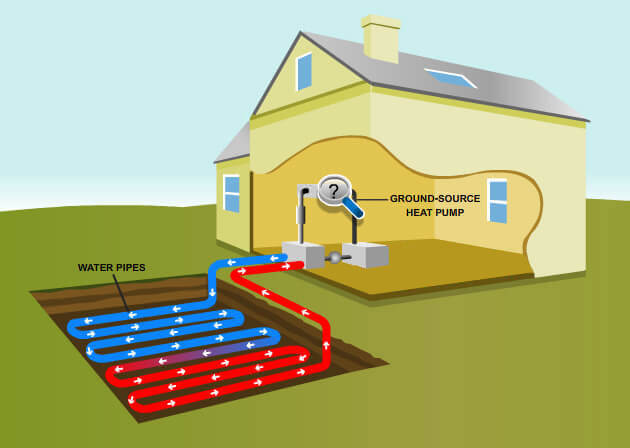From Guest Blogger Dixie Sommers: Is Geothermal Heating Right for Your Home?

The Basics of Geothermal Heating and Cooling
Geothermal systems might sound complex, but they are actually very simple. The goal of a geothermal system is to heat or cool a home by pumping fluid through buried pipes that stay within a certain temperature range. Those pipes then transfer the heat through the floors and walls. Even though the water pumps consume some electricity, these systems are much more efficient than HVAC units. In addition to lowering your energy bills, one of these systems will also reduce your carbon footprint.
Installing a Geothermal System
The biggest drawback of a geothermal system is the cost of the initial installation. Many air conditioning companies will install these heating and cooling systems, but they are typically much more expensive than traditional condensers and blowers. You are also going to need to need a larger yard for the network of pipes. Pipes can be buried deeper in small yards, but that will increase the installation costs. An experienced HVAC contractor from a company like Bryant Air Conditioning, Heating, Electrical & Plumbing can help you decide if one of these systems is going to be financially prudent for your own situation.
Maintenance Costs
After a geothermal system is installed, maintaining it is very affordable. The pipes are usually a closed system, and that means you won’t have to worry about topping off any fluids unless serious damage has occurred. Just like a traditional heating and cooling system, you will need to schedule regular maintenance if you want to keep the system running smoothly. If you have an open system, then a technician will need to flush and refill the pipes every few years. They must also check the pumps once a year to make sure that they are running smoothly.
Other Factors to Consider
The best time to install a geothermal system is when you are ready to replace your old heating and cooling system. This technology will be especially beneficial if you live next to a lake or another large body of water. You should also take a look at all state and federal incentives that might bring down the price. Finally, you will need to think about how long you plan on living in your home. You most likely won’t recoup the investment if you plan on moving in the near future.
Installing a geothermal heating and cooling system is a major investment, but this technology could pay for itself within just a few years. Those who would like to learn more about one of these systems should speak with a local energy auditor, home inspector, or HVAC contractor to discuss the pros and cons.
